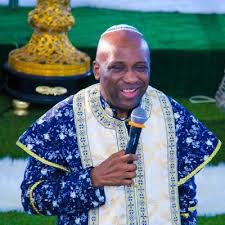Business and Brands
Fidelity Bank Dissolves Boards Of Kano, Benin, Kaduna Power Companies Over Debts, Appoints New Board Member, Tukur, Who Allegedly Profited From Chibok Girls’ Abduction
Nigeria’s commercial bank, Fidelity Bank, managing the shares of Kano, Benin, and Kaduna electricity distribution companies (DisCos), has moved to take over the boards of the companies.
The bank is doing this over the companies’ inability to repay loans obtained to pay for assets acquired in the 2013 privatisation exercise.
The bank has written to the Bureau of Public Enterprise, which oversees the government’s 40 percent stake in the DisCos that it had replaced the board members of the affected companies.
The new board members, appointed by Fidelity Bank, for Kano DisCo are Hasan Tukur (Chairman), Nelson Ahaneku (Member), and Rabiu Suleiman (Member).
For Benin DisCo, the board members are KC Akuma (Chairman), Adeola Ijose (Member), and Charles Onwera (Member) while for Kaduna DisCo, the new appointments are Abbas Jega (Chairman), Ameenu Abubakar (Member), and Marlene Ngoyi (Member).
BPE has nominated Bashir Gwandu (Kano), Yomi Adeyemi (Benin), and Umar Abdullahi (Kaduna) as independent Directors to represent the government’s 40 percent interest in the three DisCos respectively, during the transition.
Meanwhile, Hassan Tukur, the newly appointed Kano chairman has a history of graft as he was in 2016 taken to court by the Economic and Financial Crimes Commission (EFCC).
In May 2016, the EFCC granted administrative bail to Tukur, who was the principal secretary to former President Goodluck Jonathan.
Tukur was in detention for days for allegedly diverting at least $35 million he obtained to negotiate the release of more than 200 Chibok schoolgirls abducted by Islamist insurgents belonging to Boko Haram.
At least 276 female students of the Government Girls Secondary School, Chibok in Borno State were kidnapped on the night of April 14, 2014 by Islamic terrorist group, Boko Haram.
Some of the victims have yet to be recovered eight years later.
SaharaReporters had quoted a source as saying that Tukur was detained and interrogated on charges that included his reported pocketing of about $35 million out of $40 million budgeted for negotiating the release of Chibok girls.
The source said Tukur was released on bail but ordered to report to the EFCC’s headquarters in Abuja whenever he was required to do so.
BusinessDay reported on Tuesday that the Central Bank of Nigeria is no longer willing to continue to allow Nigerian banks to carry their huge non-performing loans associated with the funding of the privatisation of the power sector without having to provide for them.
The apex bank, which has supported the beleaguered electricity sector with both cash injection as well as forbearance, is now contemplating a change in the rules in light of the poor performance of at least five of the distribution companies (DisCos).


 News15 hours ago
News15 hours agoNIGERIAN BREWERIES PARTNERS OZA CARNIVAL

 Top Stories3 hours ago
Top Stories3 hours agoTinubu’s Aide Condemns Plan To Reinstall ‘Jesus Is Not God’ Banner In Lekki Mosque

 Top Stories3 hours ago
Top Stories3 hours ago2025 Budget Cannot Address Nigeria’s Economic Challenges – Atiku

 News3 hours ago
News3 hours agoPetrol To Sell ₦935/Litre From Today – IPMAN

 News3 hours ago
News3 hours agoPresident Tinubu’s reforms not responsible for food stampedes – FG

 Entertainment3 hours ago
Entertainment3 hours agoI will be more influential in Nigeria than UK – Tobi Adegboyega

 Top Stories21 minutes ago
Top Stories21 minutes agoPrimate Ayodele’s Prophecies For 2025









